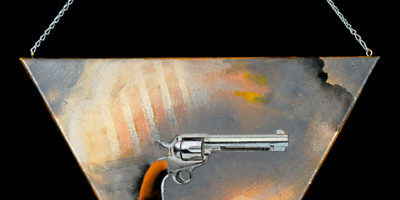In Vienna, Jewish Feminists Gather
In February, more than a hundred European Jewish women, joined by a sprinkling of Americans and Israelis, convened in Vienna for the sixth international Bet Debora Conference. More than a decade ago, as German Jewish life surged anew after the Berlin Wall came tumbling down, activists seized the moment, bent on inserting feminism into the emerging Jewish world.
So that European Jewish feminists could meet and share ideas, they founded Bet Debora. Since 1999, a series of conferences, loosely organized around themes like Jewish women and the synagogue or the Jewish family, had been held in Berlin and Budapest. But, the last, in Sofia, Bulgaria, was back in 2009.
About a year ago, Sandra Lustig, a translator and writer born in the U.S., and Eleonore Lappin-Engel, who teaches in the Center for Jewish Studies at the University of Graz in Austria, set out to re-invigorate Bet Debora and bring it to Vienna, a city at the historic political and intellectual crossroads of Europe.
Over three cold and snowy days, Jewish feminists discussed the conference theme of tikkun olam, examining how Jewish women, in the past and the present, have contributed to bettering the world around them.
Some were very frank about their ambiguous success. Svetlanta Yakimenko, representing Project Kesher’s network of 3,500 women in the Former Soviet Union, reported how, when a mosque in the Crimea was defaced, Project Kesher gathered 5,000 signatures of support for the chief imam. But, when the “mainstream” organizations sat down to discuss the problem, Project Kesher, deemed an organization only interested in women’s issues like sex trafficking, was not invited to the table. Sharon Shenhav, director of Israel’s International Jewish Women’s Rights Project and a pioneer in representing agunot in rabbinical courts, emphasized that substantive and sustaining change can only come with political power. A workshop led by Professor Andrea Pëto of Budapest’s Central European University, who is also co-president of the European Association of Women’s Studies, reflected angrily about the marginalization of gender studies in European Jewish Studies.
My personal highlight was giving the keynote at the University of Vienna. We were celebrating the launch of Jewish Intellectual Women in Central Europe, 1860–2000, a new book edited by Judith Szapor, Andrea Pëto, Maura Hametz, and Marina Calloni.
Taking as my theme “Making Women’s Histories,” (also the title of my newest book), I began by reflecting on the life of Elise Richter who, in 1897 had been one of the first three women admitted to this University. When, in 1907, this pioneer in academia became the first female university lecturer at an Austrian or German university, she had to keep her opening lecture a secret for fear that anti-Semitic
and anti-women factions would disrupt it. As the Germans marched
into Austria seventy-five years ago, she was expelled from the university to which she had dedicated her life.
We, the women of Bet Debora, could sit at the University of Vienna and learn about this pioneer of feminism’s first wave, linking Jewish feminists of Europe across the generations.
What Bet Debora made clear is that European Jewish feminists have much work ahead. About 8,000 Jews belong to Vienna’s Jewish community, but very few participated in the conference. Were they put off by the topic? Or, since the conference was affiliated with Or Chadasch, the Liberal Jewish Community, were intra-Jewish communal politics at work?
But, the good news is that the organizers of Bet Debora are forging ahead. They have plans to create a permanent structure, to reach out to younger women, and also to have their next conference in two years. I am already planning to go.


